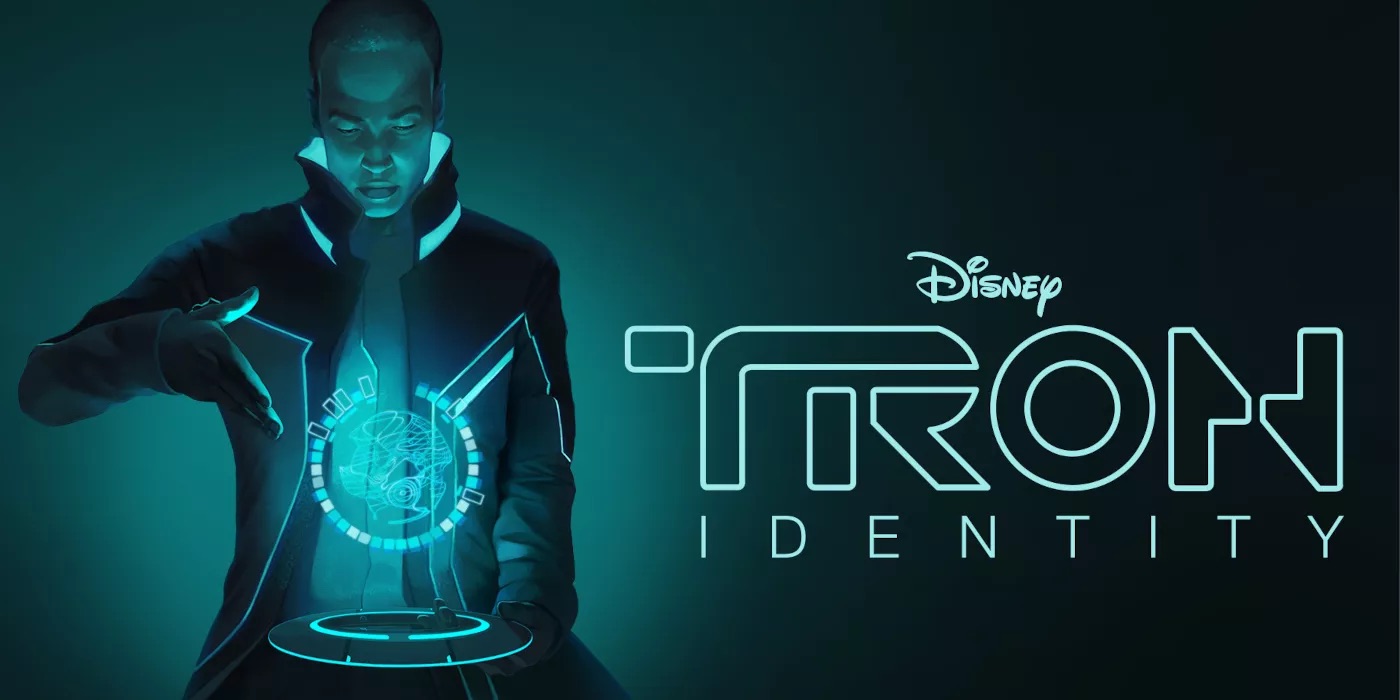In my humble opinion Disney has brutally mishandled the Tron franchise from the get-go. Their ambitious 1982 film set within the inner workings of an arcade machine was a brilliantly original film whose influence can be seen in films like Ready Player One and Wreck It Ralph. While time hasn’t been kind to the Forty-year-old flick, Tron was the first proper glimpse at what CGI could do but in true Disney fashion, the series was cut dead and it wasn’t until 2010 that the series had a sequel/reboot to its name. Another twelve years have come and gone and while Mickey continues to pledge his support for the series, the lack of tangible proof of this means that all hope of the franchise being taken seriously was pretty much lost. That is, until Tron Identity slid across my desk like a long lost data disc.
At A Glance
| Scores | |
| Visuals | 6/10 |
| Sound | 7/10 |
| Gameplay | 4/10 |
| Overall | 5 /10 |
| Positives | + Really solid package with nice visuals and soundtrack + Intriguing story + It’s Tron |
| Negatives | – Feels like it should be part of something bigger – Puzzles are a let down – Far too short |
| Price (When Reviewed) | £14.99 |
| Our Playtime | 4 hours 10 mins |
| Available On | Nintendo Switch, PC |
Developed by Bithell Games and published by Disney, Tron Identity takes place several years after the events of the last movie. We’re introduced to a new Grid, a dark and brooding place where the Creator, Flynn, is little more than a rumour. The story revolves around a program called Query, a detective who has been tasked with investigating a corporate robbery at a place called The Repository. The goliath of a building is a place where the Grid’s information is collected for storage and although there has been a crime, no one seems to know how it happened, who is responsible, or what was taken.
Rather than follow the main exploits that we’ve seen in the films, Tron Identity takes an altogether insular approach to its story, and the visual novel avoids treading similar ground rather tactfully. Sidelining Flynn in this way means his presence, or lack thereof is still felt within the game even without him being there. Instead, factions have sprung up and under the impression the Almighty will return, while others are content to let him, and any user interference slip into myth. As the opposing views gain more traction, the Grid has become a fractious world full of suspicion and deceit. While the setting is not the main driver of the plot, these undertones seep into the characters Query interacts with and produce some interesting results. Before I get too carried away with the mythos behind the game, let’s talk about what Tron Identity is all about.
Tron Identity is a moody, visual novel which plays out almost like a film noir. Query is a hapless detective who is trying to put a stop to crimes that are taking place under his watch. To unravel the mystery surrounding the crime, interrogations of suspects are held throughout the night. As the game is framed as a visual novel, the game itself is rather straightforward, you simply read the text and at various points you can choose how to steer the plot. While those expecting to be jumping on one of the iconic Light Cycles will have to look elsewhere, the feel of Identity was more akin to me reenacting the footsteps of Rorschach from Watchmen rather than playing a game with cool bikes in it.
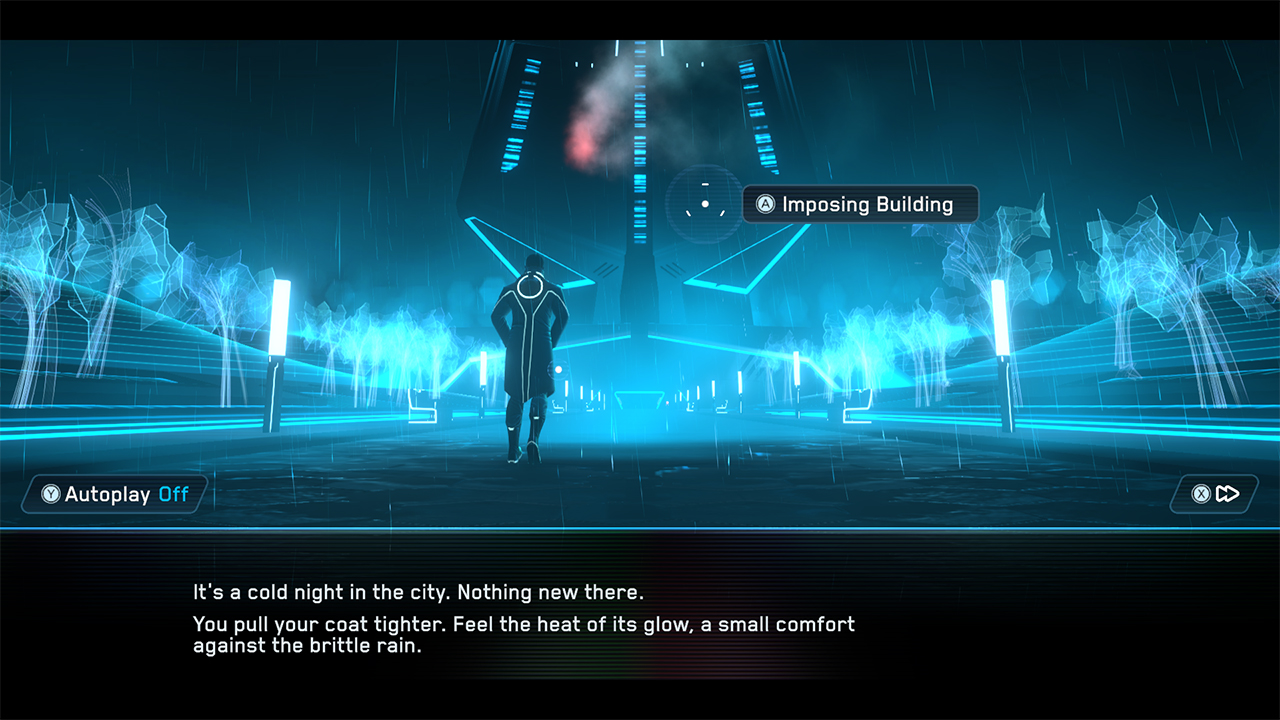
The questions Query asks will determine the ultimate outcome of the game, which instantly gave me even more incentive to carry on playing once the credits rolled. It’s here that I found the game’s first, and biggest problem. The game comes in at around a couple of hours long. The short run time was not only a shock, but for the first ending completely blindsided me as I felt the story was reaching a really fantastic turning point, only for that to end up being the conclusion. Thanks to the groundwork laid by the backstory, the moody setting and my general interest in the franchise, having another run through wasn’t too much of a problem but as more options are explored, I was left feeling flat as the story could sprawl off into an epic tale of lies, deceit and double crossing. The freedom to explore new avenues without angering fans and the result of this gives a lot of weight to the answers you provide throughout the game. One particular devotee can decide to offer no further help if you don’t side with him on a seemingly insignificant choice.
Tron Identity might have a stunted run time but it is remarkably well paced as Query takes his time to get to know a limited cast to interact with, there are a ton of options and choices that affect the order of play and will lead to different endings. Punctuating the reams of text are the re-fragmenting sections. These occur during various points in the story where Query has to unlock the lost memories of the people being questioned by repairing the program’s data disc. These puzzles are rather simple in nature as you match two numbers or symbols until no more moves can be taken. I thought it worked like a futuristic and complicated version of Uno, but luckily there’s a very generous assist mode that allows those struggling with the system can have the computer make the necessary moves for you. These memory puzzles aren’t exactly groundbreaking but they are utilised to tactfully break up the action and introduce new threads to the story. Once a program’s data disc has been restored, Query can unlock memories that have been wiped, which allows my interrogations to continue forward.
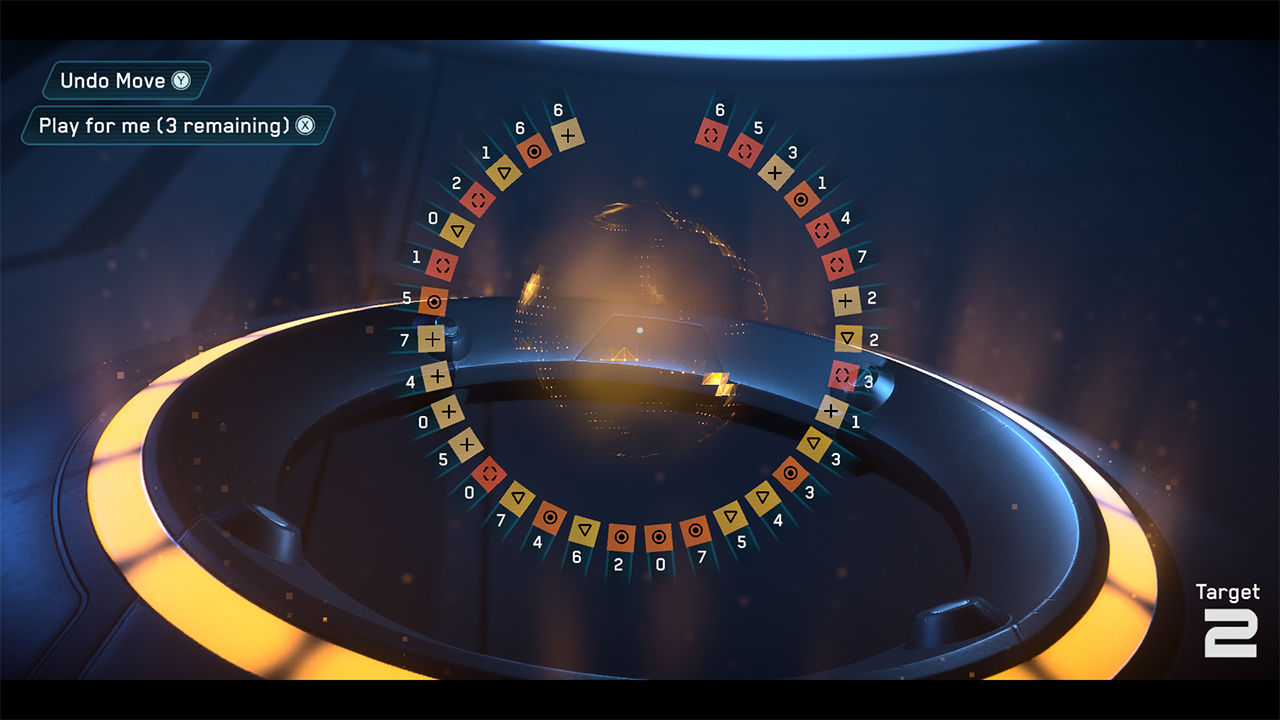
Where Tron Identity really shines in the presentation and as with any visual novel, the interactions are text based which does leave room for the developers to really highlight their graphical design. Each scene is expertly crafted with dark colours mixed with flashes of vibrant neon colours that pop on the screen. The scenery isn’t the only recognisable feature as every detail has been considered, from the character’s clothes to the vast data streams, it all fits within the established aesthetic that can only be described as being distinctly Tron. It was such a pleasure to be exploring a whole new world, and all the while knowing it was still part of the beloved franchise.
Identity’s music is equally recognisable despite it being completely original. It would be unrealistic to assume that any soundtrack can live up to Daft Punk’s seminal work with Tron Legacy, and rather than compete with this Bithell Games puts its own spin on the proceedings. The music is a lo-fi synth wave experience you’d associate with a dark and brooding game, set in a technologically advanced city. For the most part I didn’t have any feelings either way, the beats were there and that was it. That is until something hits the proverbial fan and that moody electronic sound ramps up into something a lot more desperate and urgent. The easy going dun-dun-duns are replaced by a thumping and somewhat disturbing beat that ramps up the tension of any scene that drives a feeling of dread as the action starts to unfold. The soundtrack doesn’t suddenly change so it breaks the atmosphere, rather the change ebbs and flows naturally and I only noticed the switch when it was too late. It reminded me more of how Blade Runner’s ambient score complimented the action and only made itself known at key moments rather than trying to overshadow it to appear relevant.
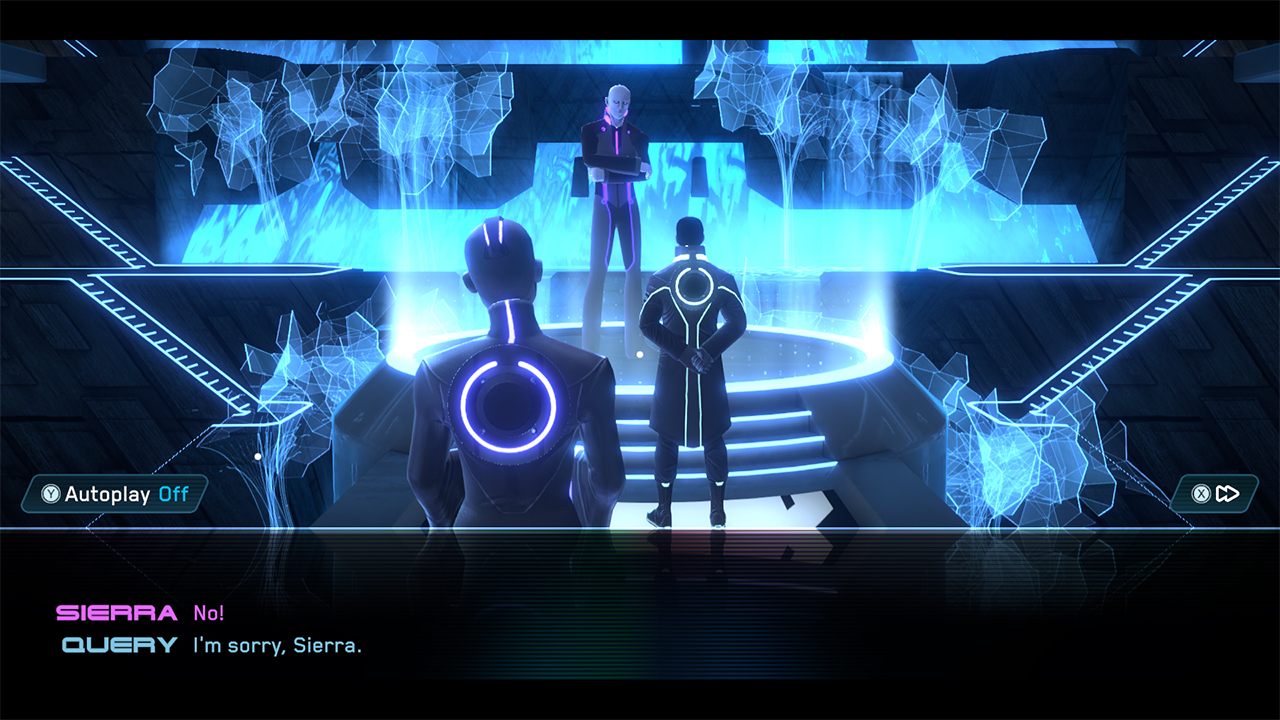
Although my time with Tron Identity was brief, it was nice to return to the virtual landscape that makes up The Grid. The world inside has undoubtedly moved on since the events of Tron Legacy, but the world is as recognisable as ever. Much like how Disney have approached Star Wars by expanding from the small cast of Skywalker family, was a welcome touch that proves there is a real depth to what is essentially the inner workings of an ageing arcade machine. The trouble is that just as Identity was working towards a bigger story and finding its rhythm, I suddenly had the rug pulled and it just ended. The nature of this hasty wrap-up left me feeling like Tron Identity is a prelude for something bigger, perhaps a movie tie-in or a miniseries, but as a standalone video game, I was left with that familiar bitter taste in my mouth. That’s not exactly the game’s fault, but outside of people who have a passing love for Tron, I’m not sure who the game is aimed at. I remain ever hopeful we’ll see more Tron love and with any luck, it’ll be sometime in the next twenty years.

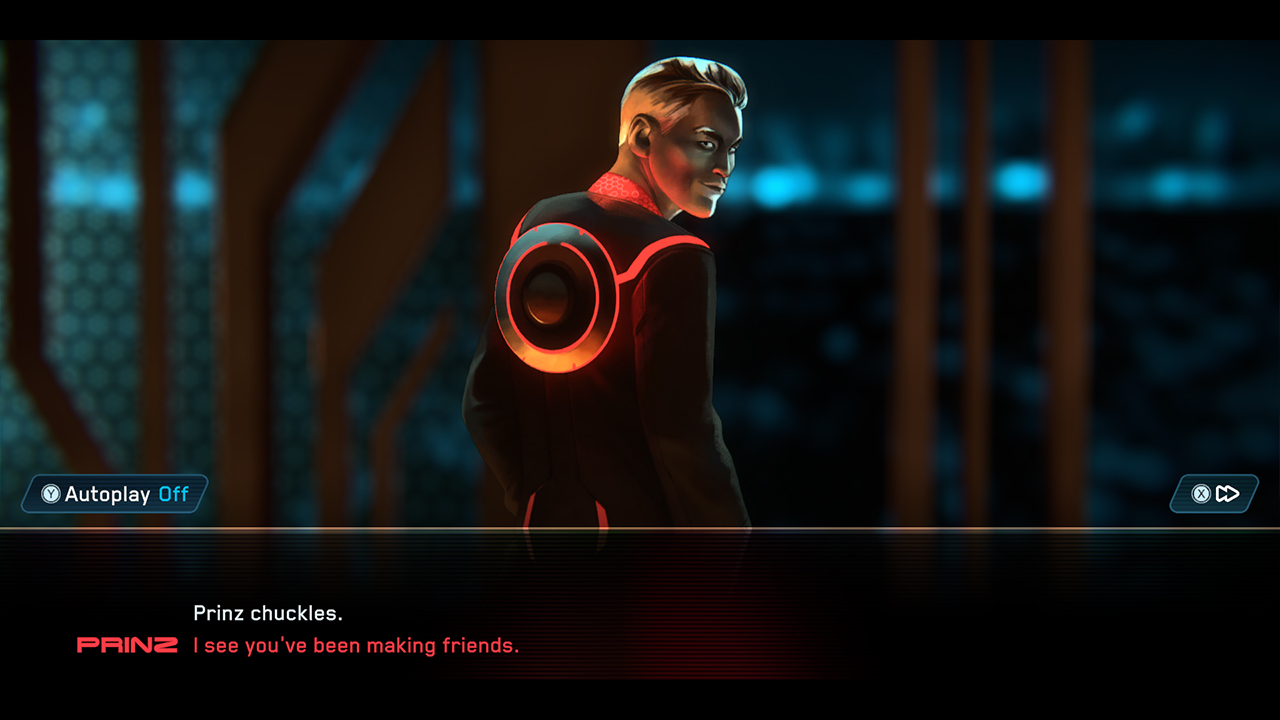
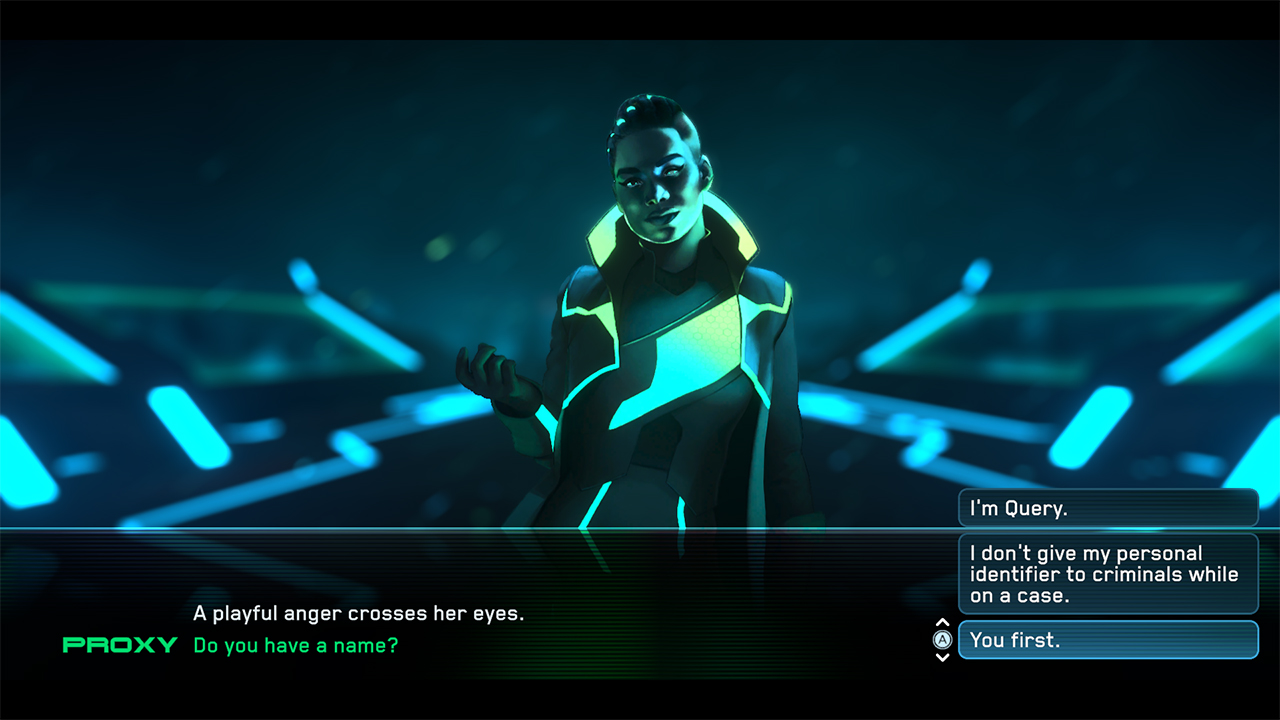


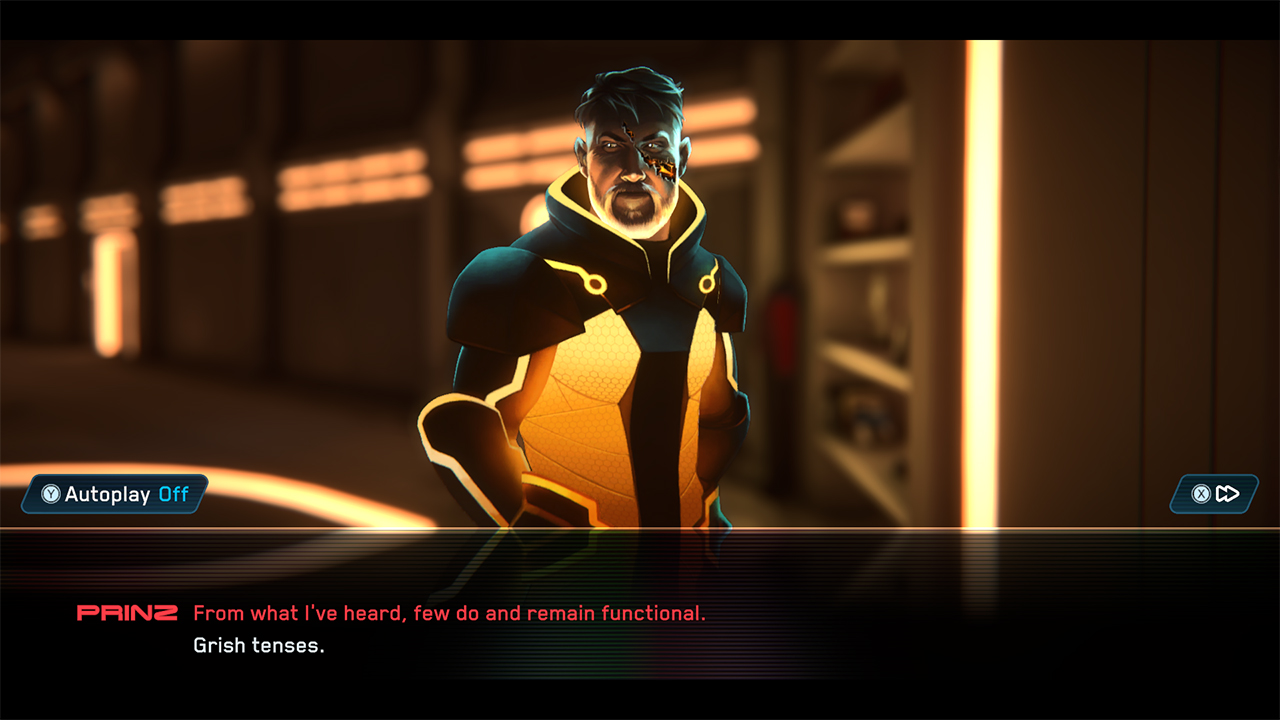
In the interest of full disclosure, VGamingNews was provided with a copy of the game in order to conduct this review.

